Portuguese Water Dog 101: The Essential Guide
| Origin | Portugal |
| Size | Medium |
| Height | 17-23 inches |
| Weight | 35-60 pounds |
| Life Expectancy | 12-15 years |
| Breed Group | Working Dog Group |
| Affection Level | ⭐⭐⭐ |
| Friendliness | ⭐⭐⭐ |
| Activity Level | ⭐⭐⭐ |
| Barking/Howling Level | ⭐⭐ |
| Pet Friendly | ⭐⭐⭐ |
| Kid-Friendly | ⭐⭐⭐ |
| Shedding | ⭐ |
| Easy to Groom | ⭐ |
| Easy to Train | ⭐⭐ |
Table of Contents
Origin


The Portuguese Water dog (PWD) or the Cao de Agua in his native name comes from Portugal where he established a certain image as a water retriever. It is believed that the Portie shares the same prehistoric genetic pool with the famed Poodle who also had a matching type of work in Germany.
Porties mainly functioned as dogs who cross from one boat to another to deliver messages, retrieve fishing gear, or drive fishes into the net. They excel in such a job making fishermen have an easier time in fish harvesting.
When the 20th century came, this dog breed almost got extinct when fishing became modernized and canines of this kind gradually became unnecessary. Luckily, Vasco Bensaude took initiative in reviving the Portie. A few decades later, the Portie dog was introduced both in England and the US.
Appearance


The breed type of the PWD consists of certain identifiable characteristics. First, he is a medium-sized dog with a body that is slightly longer than his height. Ideally, females are 17-21 inches tall weighing 35-50 pounds while males reach anywhere between 20-23 inches and are 42-60 pounds heavy.
Usually, a PWD should have a big, deep chest with a muscly back. His remarkable upright tail tapers at the base and is fluffy at the tip. All four legs are strong and sturdy with webbed toes that aid him in swimming. He can either have a wavy or curly coat without any existing undercoat. He comes in various colors such as black, black & white, brown, white, and white & chocolate.
Temperament
The Portie is a strong-willed dog that is keen, loyal, and intelligent. What stands out the most is his sense of humor and ability to outsmart you if you don’t think a few steps ahead of him. This is a general temperament, however, since some can be easygoing, strong-willed, or fall somewhere in the middle.
Affection
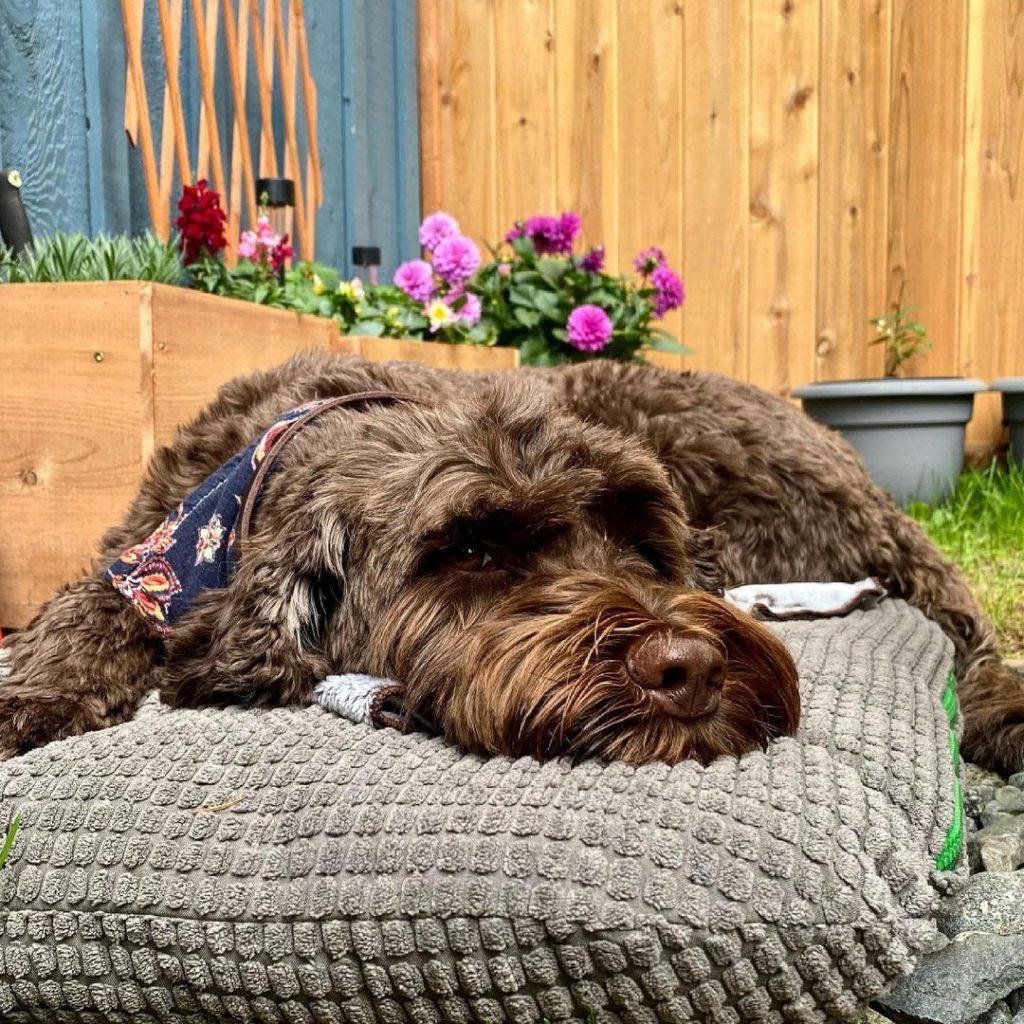

Perhaps many of us would assume that since working dogs are independent, they wouldn’t have high levels of affection. Thankfully, this isn’t the case with the PWD as he was bred to be a companion dog. Usually, in a family, the Portie canine tends to develop a closer relationship with a specific member but would remain to spend time with the rest. His loyal and affectionate nature makes him crave gentle pets and an owner-to-dog bonding moment.
Friendliness
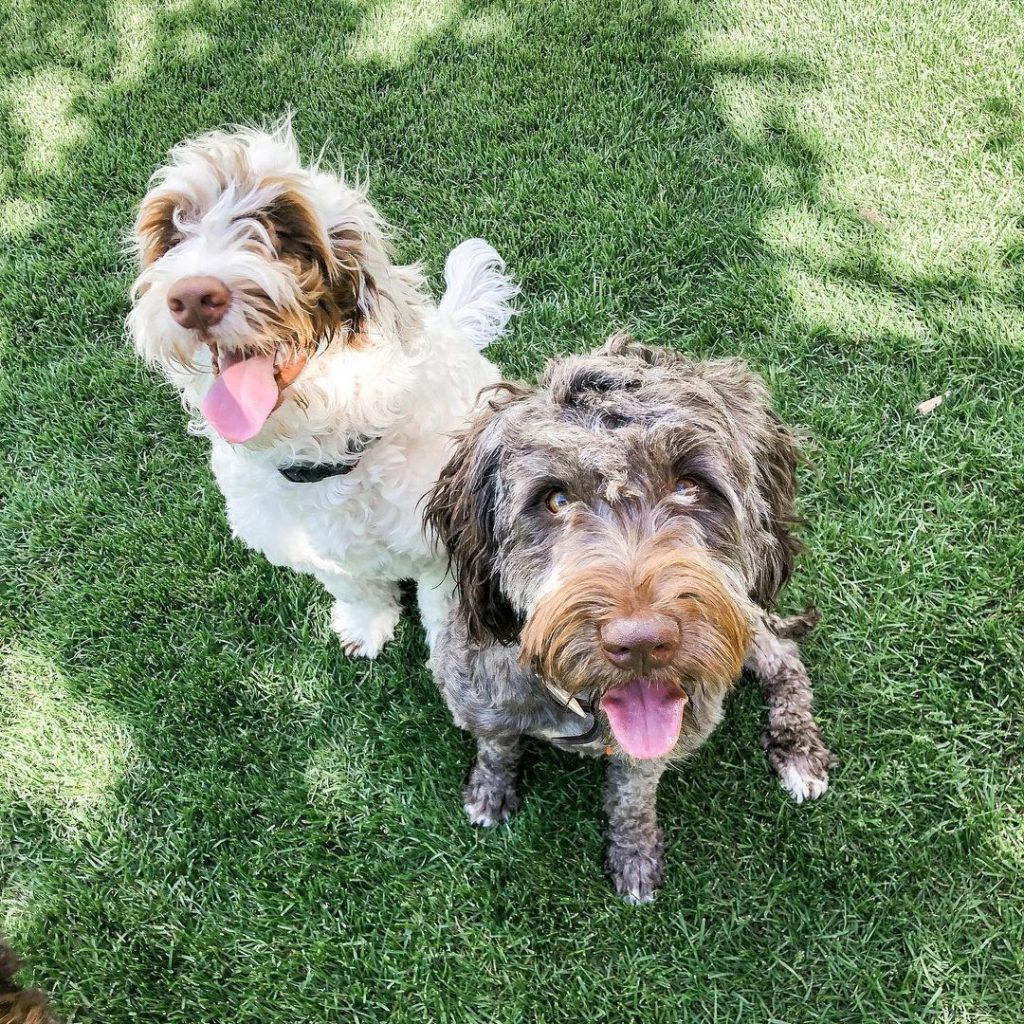

Letting your Portuguese dog play with your kids is something you wouldn’t be concerned about. This dog breed gets along with kids very easily mostly if he’s raised with them. If he’s constantly exposed to your other pets such as cats and other dogs, this Portie pooch will learn how to be approachable. The only exceptions are rodents or birds which might awaken his prey drive.
As for strangers, a PWD is mostly likely to exhibit unfriendliness not because he is being protective but because of fear. In some instances, a Portie may be reserved yet open to know an individual, but if your pet gets too friendly very quickly toward unknown people, training needs to be taken seriously.
Activity Level
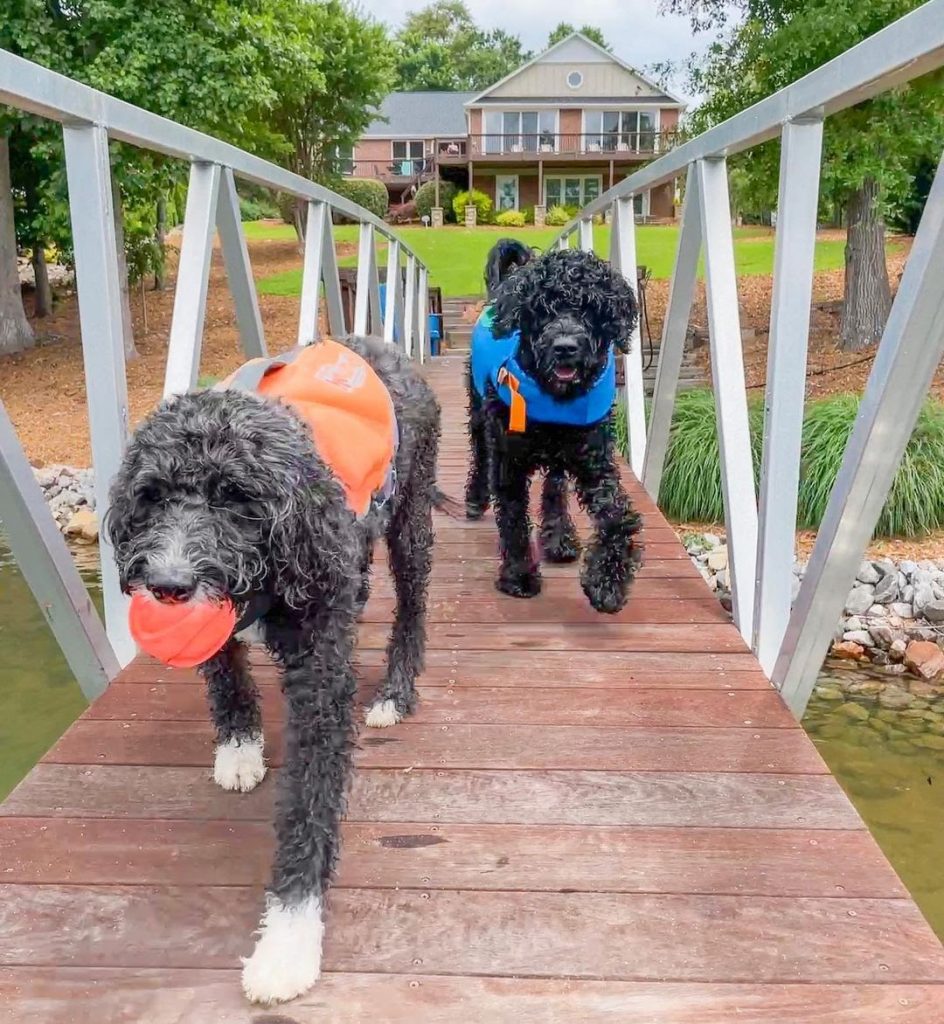

His working history automatically grants a Portie pup a high level of energy. It is strongly needed that he gets regular activities where he could release his pent-up energy to avoid unwanted behaviors that could damage your furniture or mess up your yard with his digging. True to his name, a Portie will love playing with the water either being under the rain or in a small pool. Spending time outdoors in an enclosed area will keep him from wandering.
Care
Before getting a Portuguese Water Dog puppy, you should know that this isn’t exactly a low-maintenance dog. He has certain needs that are required to be met to secure him a high-quality life. Nevertheless, it wouldn’t mean going overboard and filling him with luxury. By simply providing the basics, this dog is guaranteed to have a happier disposition.
Grooming
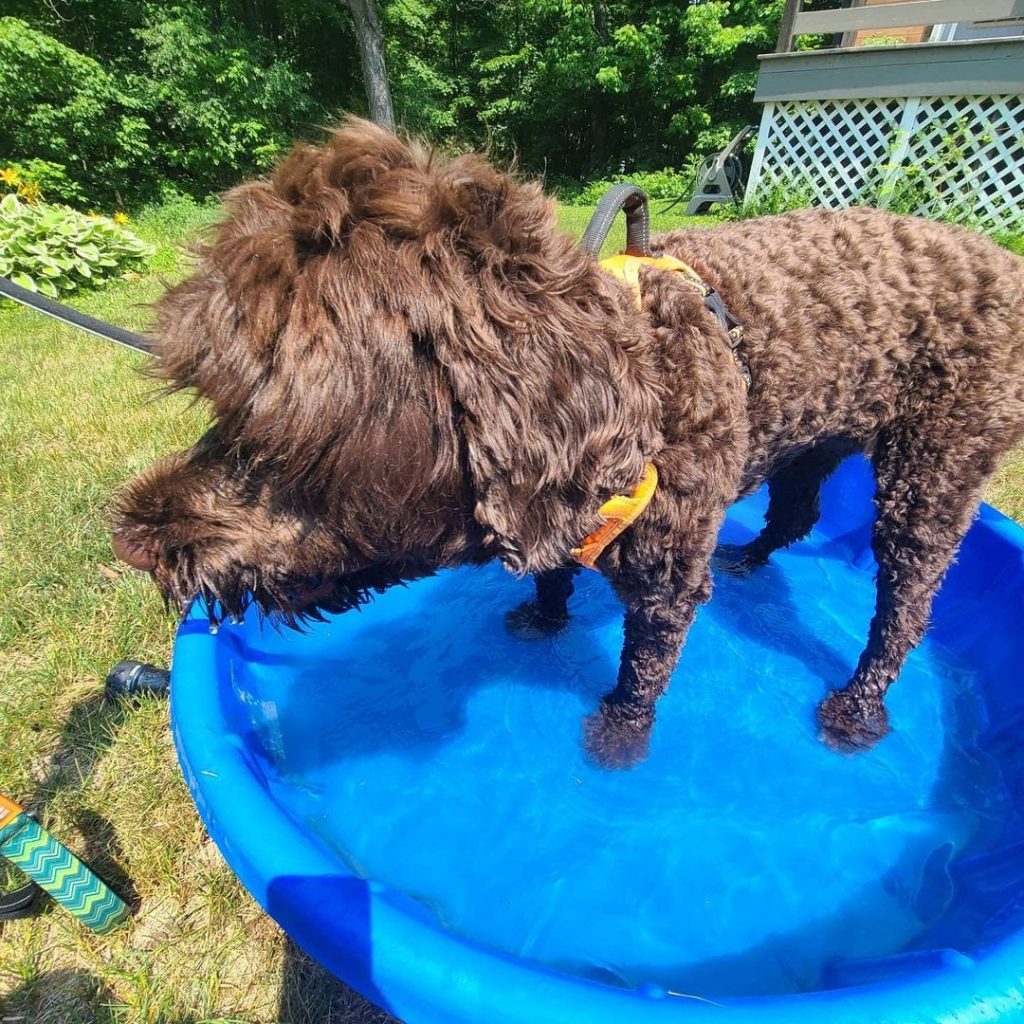

It’s amazing how low this dog’s shedding rate is despite his coat type, isn’t it? That means he has a hypoallergenic coat! Even so, brushing is still a prerequisite and oftentimes extensive. Brushing him thrice a week will prevent his coat from matting and tangling while having his fur trimmed once a month will keep him in shape as well as maintain his hygiene.
For an allergy sufferer, it is important to be aware that despite the Portie being labeled an anti-allergenic dog, allergens will still be present in other forms such as saliva and urine, so consulting your doctor before getting one is advised.
When it comes to his coat, he can be groomed in two ways: the lion clip and the retriever clip look.
On another note, since your Portuguese dog would frequently whine to get into the water, an exhaustive ears, skin, teeth, coat, and nails check must be done to see any onset of infection or festering.
Food and Diet
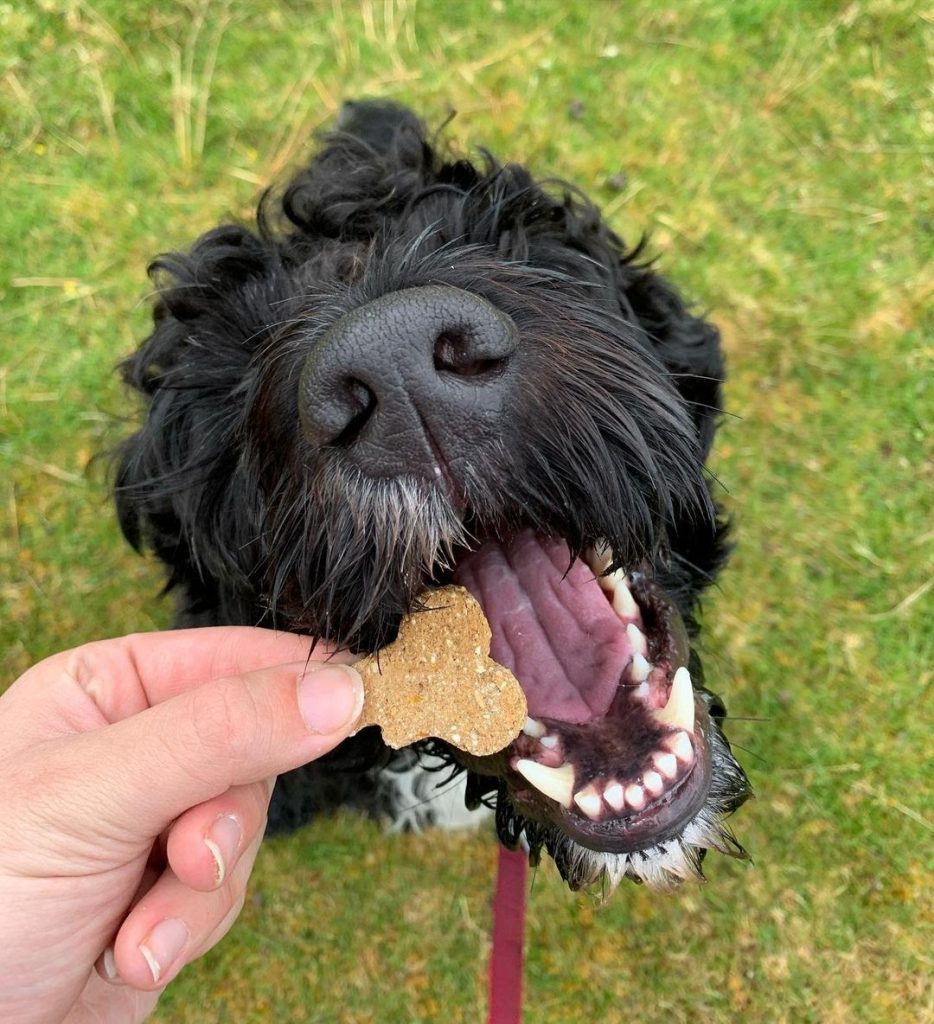

Just like any other dog, the Portie does best in high-quality dog food since he has a spirited disposition that loves to keep moving. You can talk to your vet and determine which is best suited for your canine’s health and needs. It is recommended to base the amount of food on his size, age, and activity level to avoid excess weight.
Also, avoid giving him free access to food. Instead, feed him twice daily on strict schedules.
Exercise
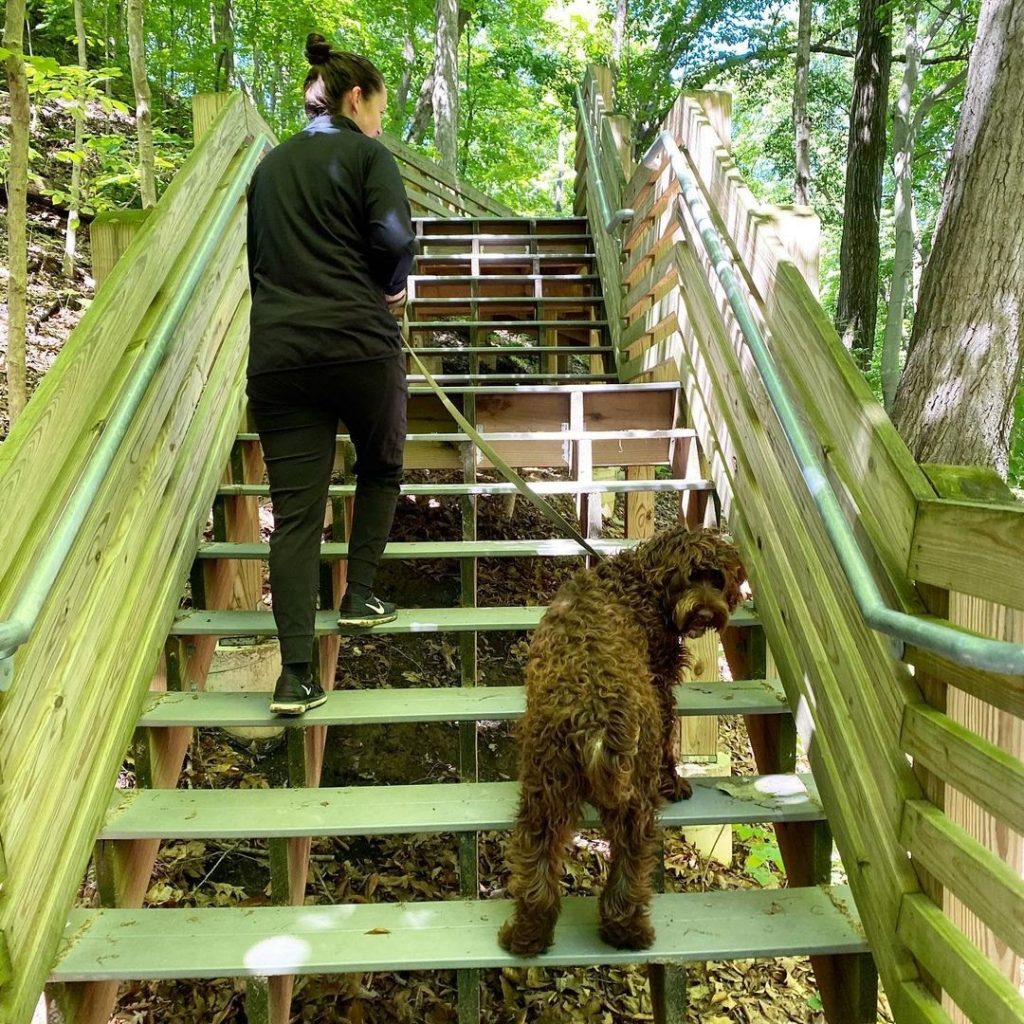

Although a Portie is medium by size, he matures as fast as a large dog. He would typically have an adult body in only a few months while his muscles will keep on developing until 18 months. With that, exercise is necessary before his growth plates close.
A three to four times walk daily would suffice to keep your PWD healthy which can be done preferably on grass. Playing a game of fetch is ideal as long as the way you throw it is in a manner that wouldn’t require him to have sudden and sharp twists using his body. If possible, let him have a dog companion to play with! Just monitor their interaction and pull each other away once they start skylarking towards each other.
Training
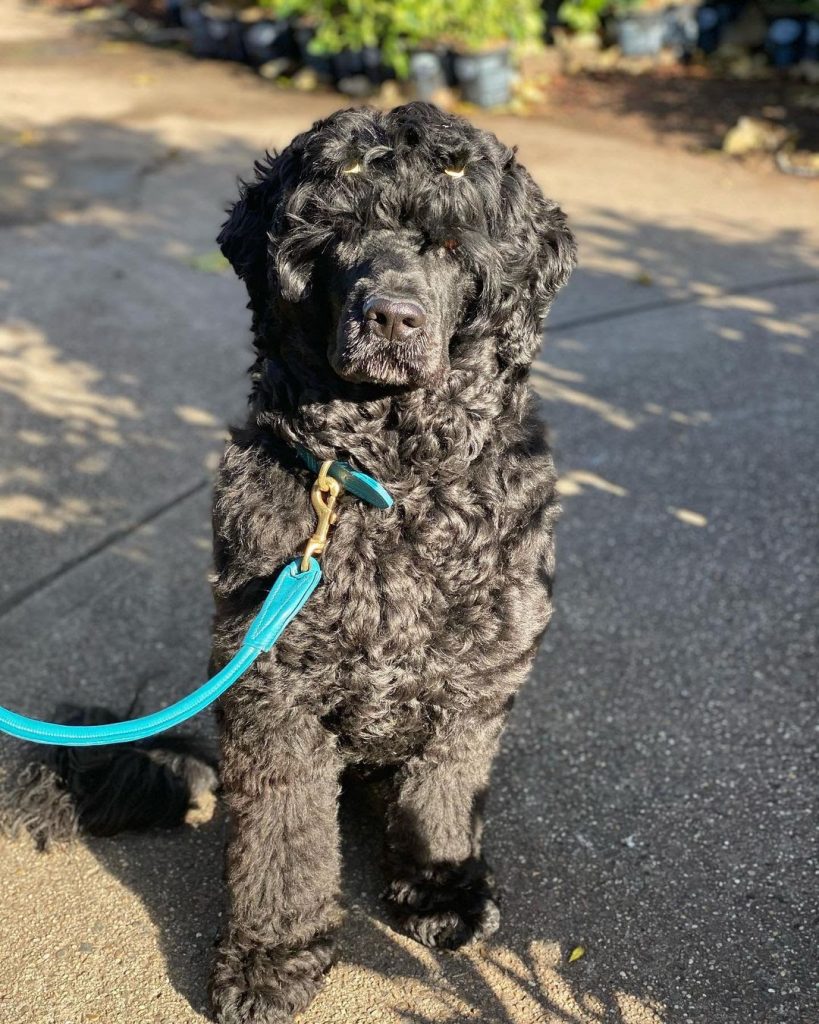

There are a plethora of things a Portie adult dog can do no matter how difficult the tasks can be. He has a strong build, a high energy level, and is highly intelligent. In Stanley Coren’s book, “The Intelligence of Dogs”, this water dog bags the 28th spot out of 199 dogs! That only means that he can learn things very quickly without you breaking a sweat.
You may wonder how long the training would last for this dog. If you are consistent about it and use the correct methods and reinforcements, it will only take him 2 weeks to absorb house rules and tricks depending on the complexity. Hiring a trainer is recommended as well to ensure that the training session suits your dog perfectly. Socialization training is easy-peasy for him too. His outgoing personality would make him the friendliest in a pack of dogs!
Health Problems
The Portie has an average life span of 11 to 14 years and although he is generally healthy, he is still prone to several complications. Among them is a crippling disorder of the hip socket otherwise known as hip dysplasia. He can also have an inherited disease called microphthalmia. This can be checked as early as 8 weeks of your puppy’s life.
Another rare condition that is particularly found in the Portuguese Water Dog breed is GM1. This is a neurological disease that will manifest between 5 to 6 months. If you are getting your pup from a reputable breeder, asking for written documentation regarding the parents’ GM1 status is a must.
GM1’s symptoms would include:
- Head tremors
- Lethargy
- Loss of vision
- Difficulty to walk
- Loss of balance
- Weight loss
Other common health concerns that would require immediate professional treatment are:
- Gastrointestinal disorders
- Allergies
- Addison’s disease
- Heart and thyroid problems
- Alopecia or hair loss
- Epilepsy
Pros and Cons of Getting the Portuguese Water Dog
Pros
- He’s an alert watchdog
- Good exercise partner and therapy dog
- Very sociable with other dogs
- The shedding rate is low
- Athletic
- Agile
- Friendly with strangers
- Easy to train
- Highly intelligent and loyal
Cons
- Requires a very active lifestyle
- He can be strong-willed
- Prone to undesirable behavioral changes if he has lots of pent-up energy
- Needs moderate grooming
- Needs daily exercise
- He would require a fenced yard
- He is not a good choice for a guard dog
Do Kennel Clubs Recognize the Portuguese Water Dog?
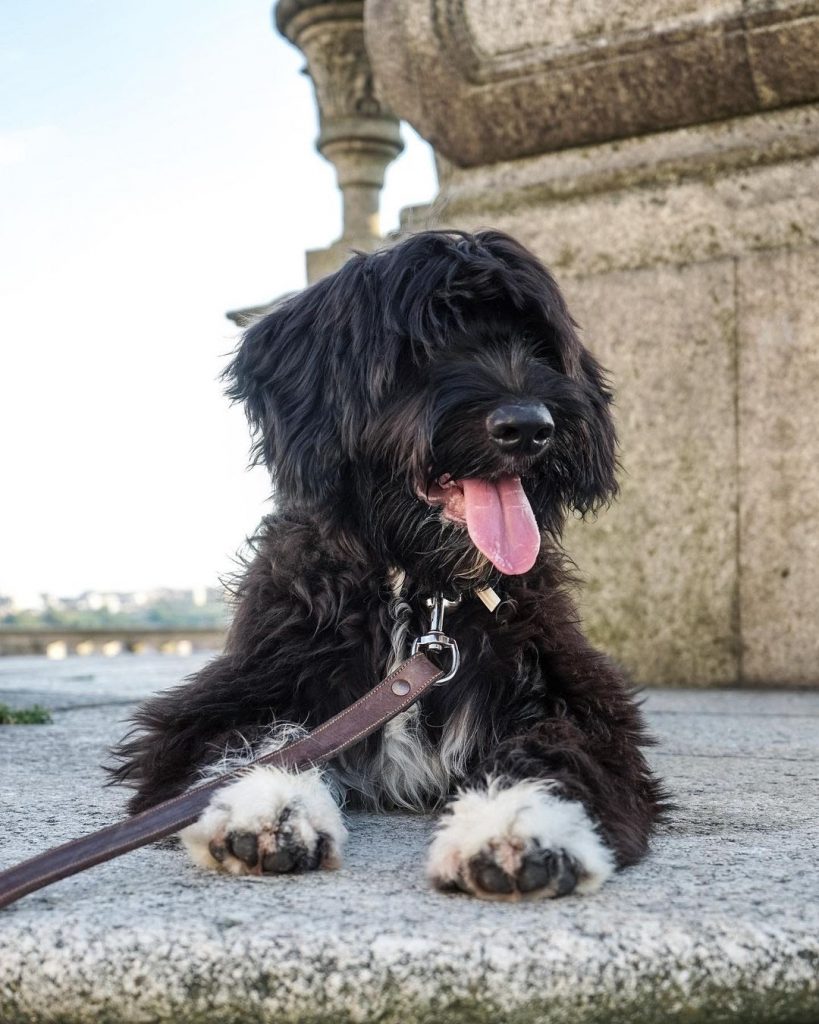

The Portuguese Water Dog is branded to be the American Kennel Club’s 128th breed! However, the journey to recognition was never that easy for this dog. In 1972, the Portuguese Water Dog Club of America was formed but the number of dogs for this kind was only 12. It was after 10 years when the size increased to 650 and the Portie was placed in the miscellaneous class. This became a means for this water Portie to become acknowledged as a distinct breed we know of today.
Currently, he ranks 50th out of 197 in the popularity ranking of breeds according to the AKC.
Cost
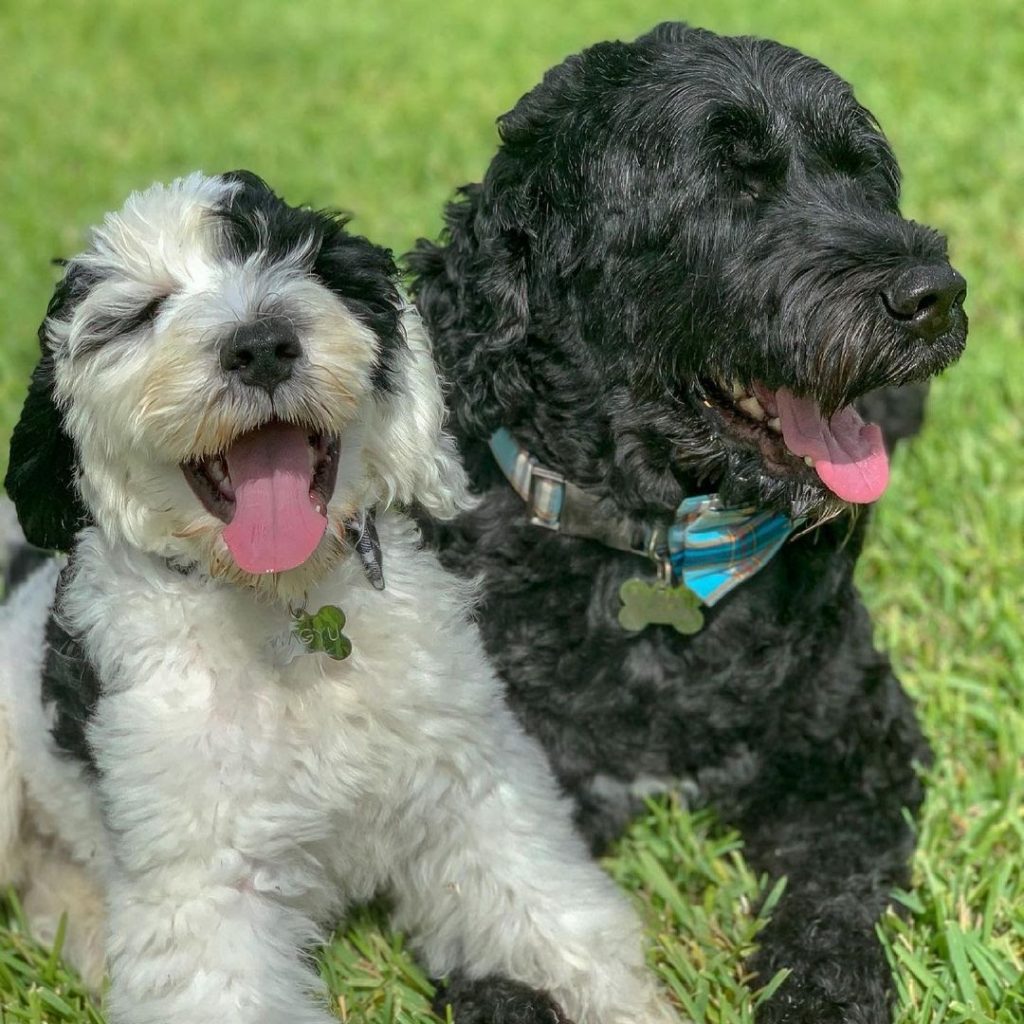

When it comes to Portuguese Water Dogs, the price tag is quite high. If you go for trusted breeders, one is likely to cost between $1500 to $2800 with an average price of $2200. The reason behind Portie being such an expensive pet is mainly due to his health. The Portie parents need various costly medical tests to be undergone before they are used to breed.
Once you have your puppy, ready your monthly budget of $138 or $1656 annually. In the first year, however, there are usually a lot of things to spend on for your dog which can be around $4100. Averagely, owning a Portie would mean spending almost $22,300!
If you are the type of owner who wants everything for your pet, the average cost can blow up to $124,500 through the course of your dog’s lifespan. As for adopting, shelter homes will normally charge $300 which may change depending on several factors. Adoption is always cheaper than actually purchasing a dog and that sounds like a good deal!
Where to Adopt or Buy Portuguese Water Dog
The popularity of the water Portie is soaring high especially that two of this kind are famously owned by former President Barack Obama himself. If you want to get one for your family too, you can contact various reputable breeders who will give you the guarantee that your future Portie is healthy:
The most sought option perceived by many dog lovers is, no doubt, adoption. Thousands of dogs including several Portie canines are waiting to be brought to a warm loving home again! Dogs from adoption centers make the best and loyal dogs so why not rescue one?
Getting a Portie can elevate anyone’s quality of life with his intelligence, good watchdog characteristics, and approachable nature. With him beside you, you will be motivated to keep yourself active and healthy! If you think this dog resonates well with you, don’t hesitate from getting yourself this regal dog that your family will surely enjoy.
